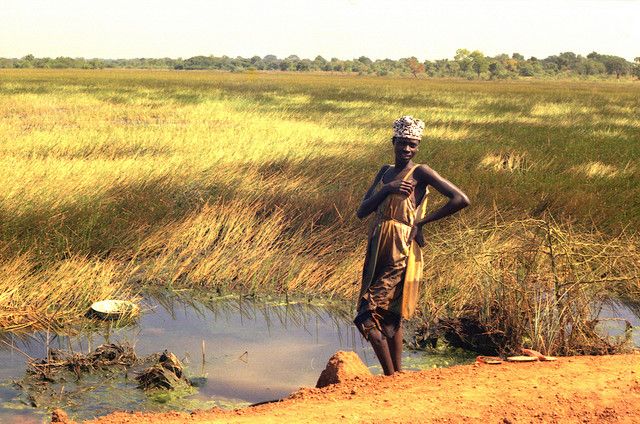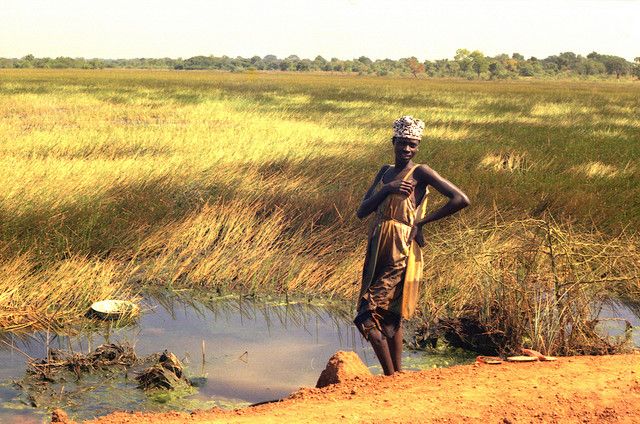Hedge funds responsible for surge in African land purchases
According to a report by the Oakland Institute, hedge funds are responsible for the ongoing acquisition of African land (land grabs), to gain profits in the food and biofuel sectors.


According to a report by the Oakland Institute, hedge funds are responsible for the ongoing acquisition of African land (land-grabs), to gain profits in the food and biofuel sectors.
The US based think tank has highlighted the growing trend of foreign investment firms and hedge funds buying up colossal areas of land across Africa.
The study details the land deals involving Ethiopia, Tanzania, South Sudan, Sierra Leone, Mali and Mozambique. Where in 2009 alone, nearly 60 million hectares of land in the respective countries was brought or leased (many of these totaled 99 years). Putting this into perspective, this is the equivalent to an area of land the size of France.
“No one should believe that these investors are there to feed starving Africans, create jobs or improve food security, Obang Metho of Solidarity Movement for New Ethiopia said.
“These land-grab agreements, many of which could be in place for 99 years, do not mean progress for local people and will not lead to food in their stomachs. These deals lead only to dollars in the pockets of corrupt leaders and foreign investors,” Mr Metho claims.
The report notes how the hedge funds and investors have acquired the land, despite the profound implications posed by the consolidation of control over global food markets and agricultural resources by financial firms. For it is here the problems lie, as the dealings involved in the land grabbing lacked transparency without the necessary and legitimate paperwork.
Purchasing the land has meant displacing millions of small farmers, who rely on the land for income and food for their families. The land is now being used for export commodities, including biofuels and cut flowers. .jpg)
The report entitled “Understanding Land Investment Deals in Africa” notes how the purchases have little if any benefit to the native population.
“The same financial firms that drove us into a global recession by inflating the real estate bubble through risky financial maneuvers are now doing the same with the world’s food supply,” said Anuradha Mittal, executive director of the Oakland Institute.
“In Africa this is resulting in the displacement of small farmers, environmental devastation, water loss and further political instability such as the food riots that preceded the Tunisian and Egyptian revolutions,” Mittal added.
For the first time the paperwork documenting the deals have been disclosed within the public sphere, with the shocking ease and common practice of the process finally exposed.
“The research exposed investors who said it’s easy to make a land deal – that they could usually get what they want in exchange for giving a poor, tribal chief a bottle of Johnny Walker,” Mittal said.
Worse still is the fact that it is not only alternative investment firms that are responsible for the land grabbing, with universities including the prestigious Harvard buying land.
Worryingly the study also revealed outrageous incentives including unlimited water rights and tax waivers.
Mittal concluded in the report that the buy up and development of land by foreign investors is an attractive high-return investment, but reiterates that the process can drive up food prices dangerously and increase the risk of climate change.
However, EmVest Asset Management, one of the companies named in the report has denied any wrong doings in an interview given to the BBC.
"There are no shady deals. We acquire all land in terms of legal tender," said EmVest's Africa director Anthony Poorter.
Frederic Mousseau, policy director at the Oakland Institute, without mentioning the illegitimate gain of land does sum up the underlying issue at the heart of the process that is being ignored by investors, saying that its affect on the global food system “could be a much bigger threat to global security than that of terrorism.”
Previously Chinese and Middle Eastern firms have been identified as "grabbing" land from developing contracts, in order to grow cheap food on previously imnhabited land. However, in the report by the Oakland institute it is predominately western firms behind the biggest deals.
Image 01: Gbaku | Flickr
Image 02: Robin Hutton | Flickr




